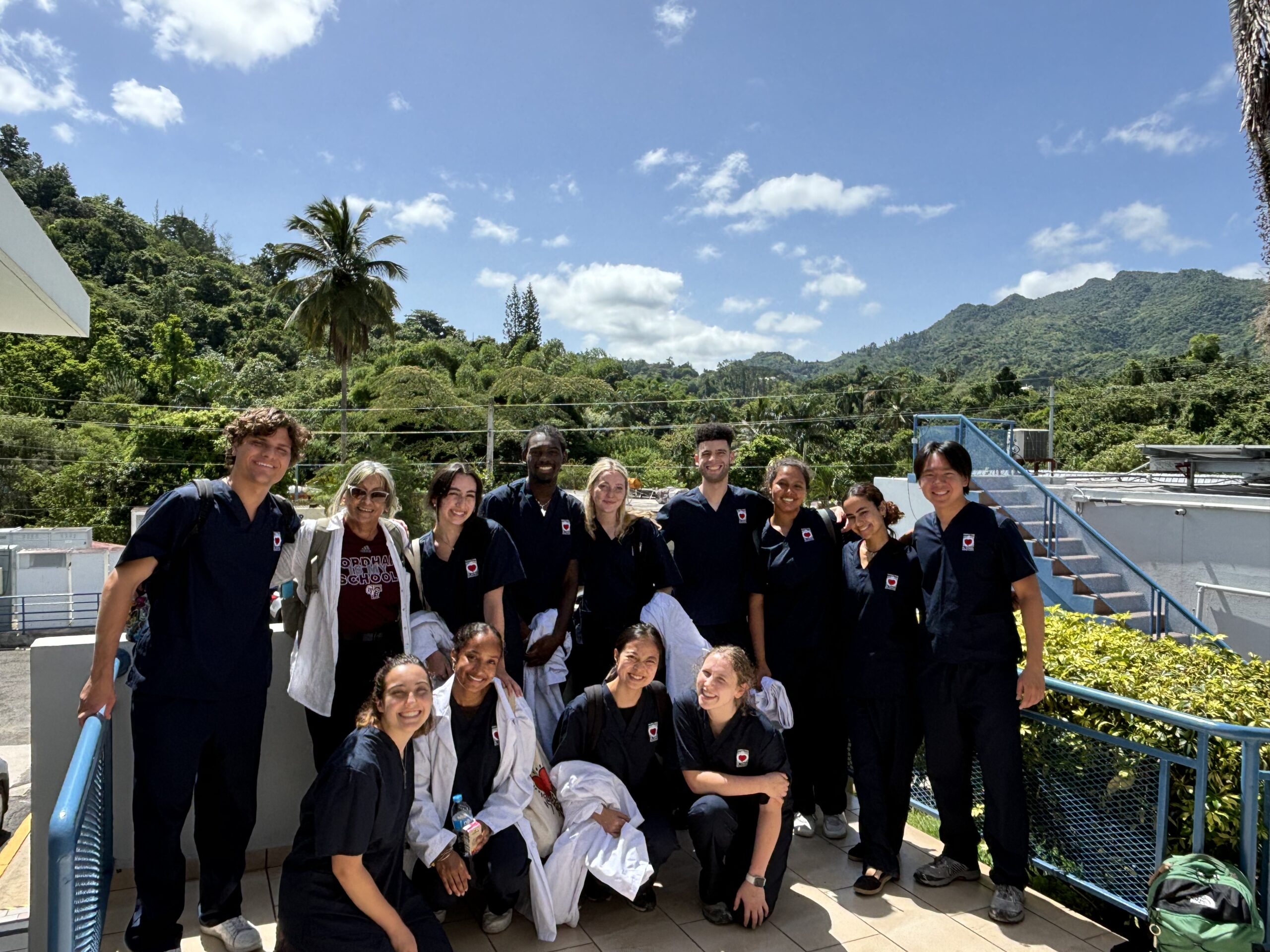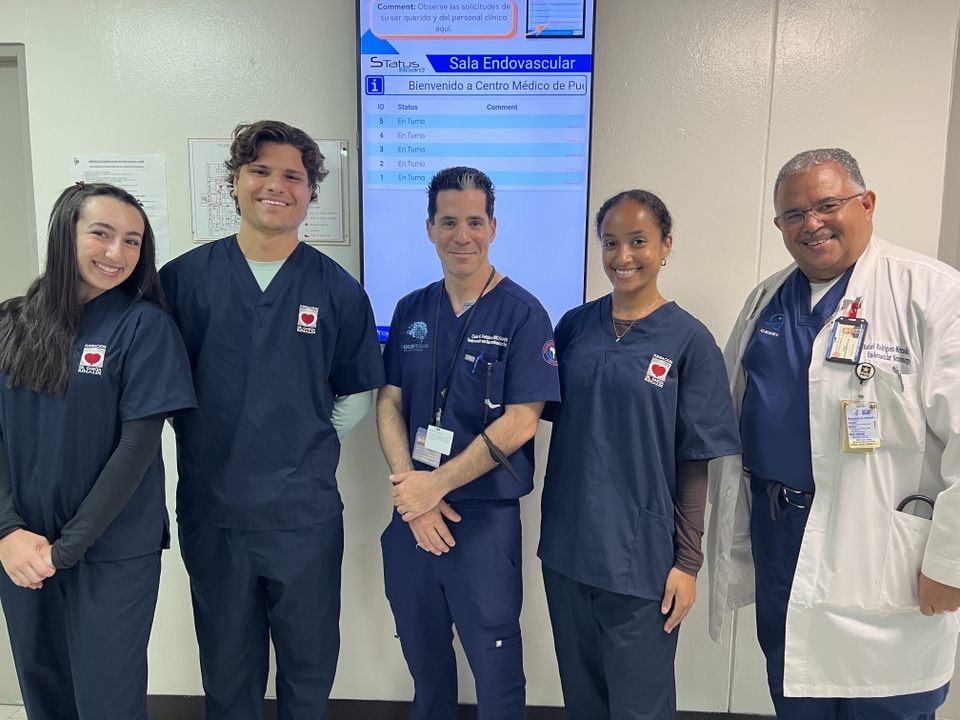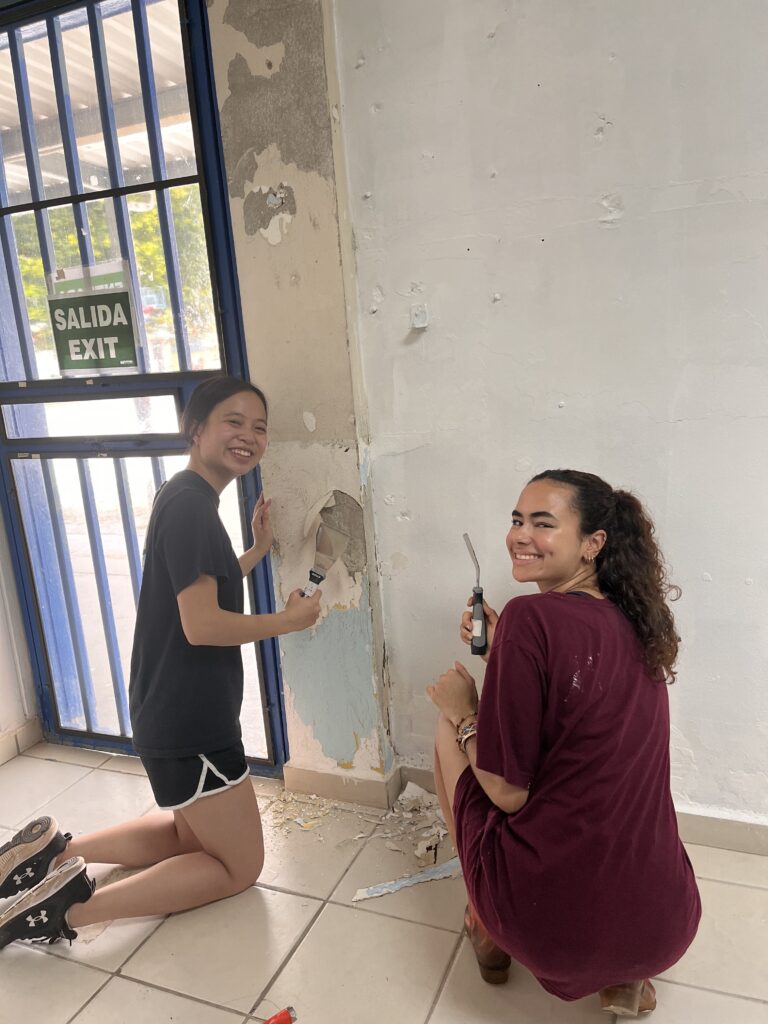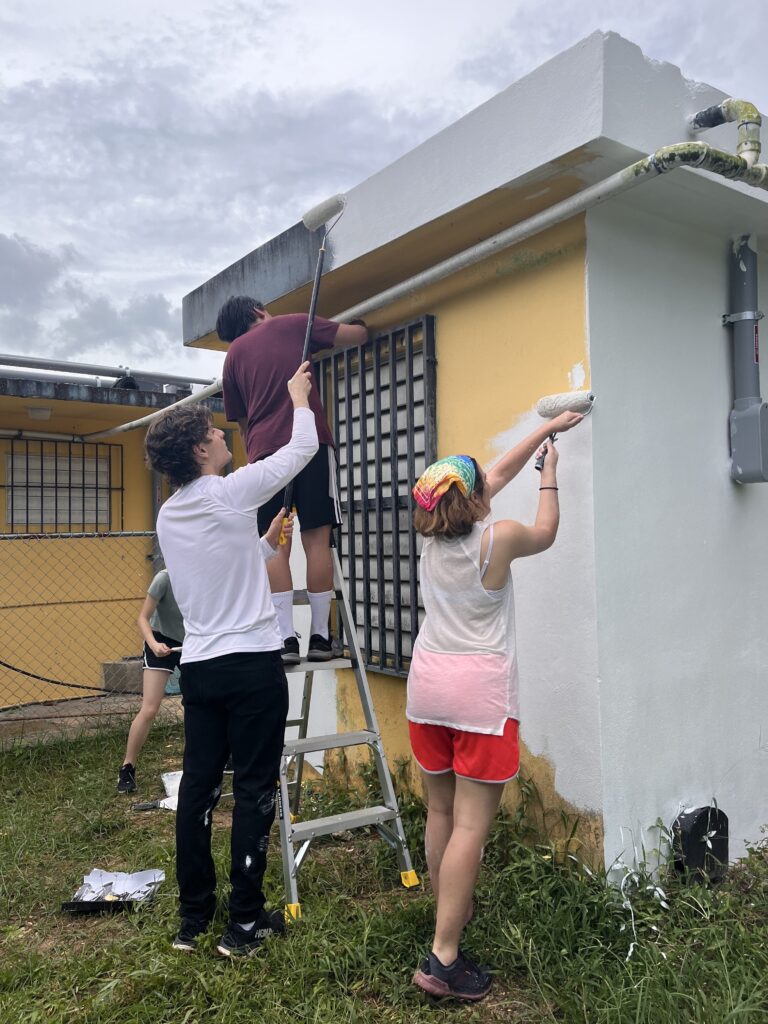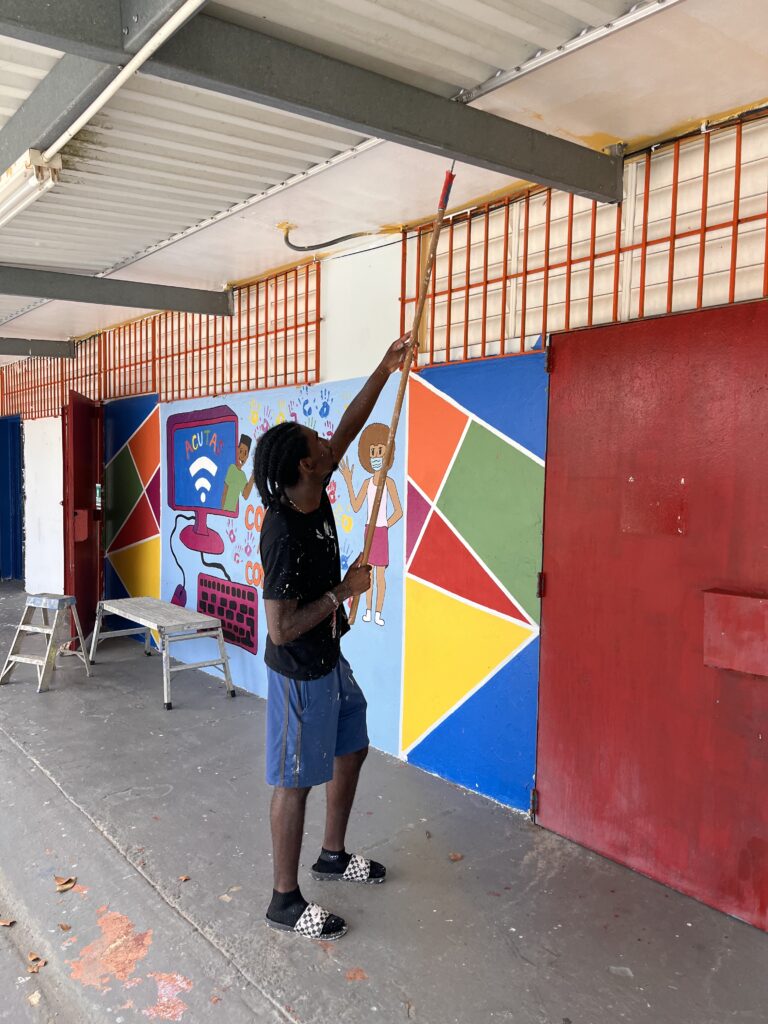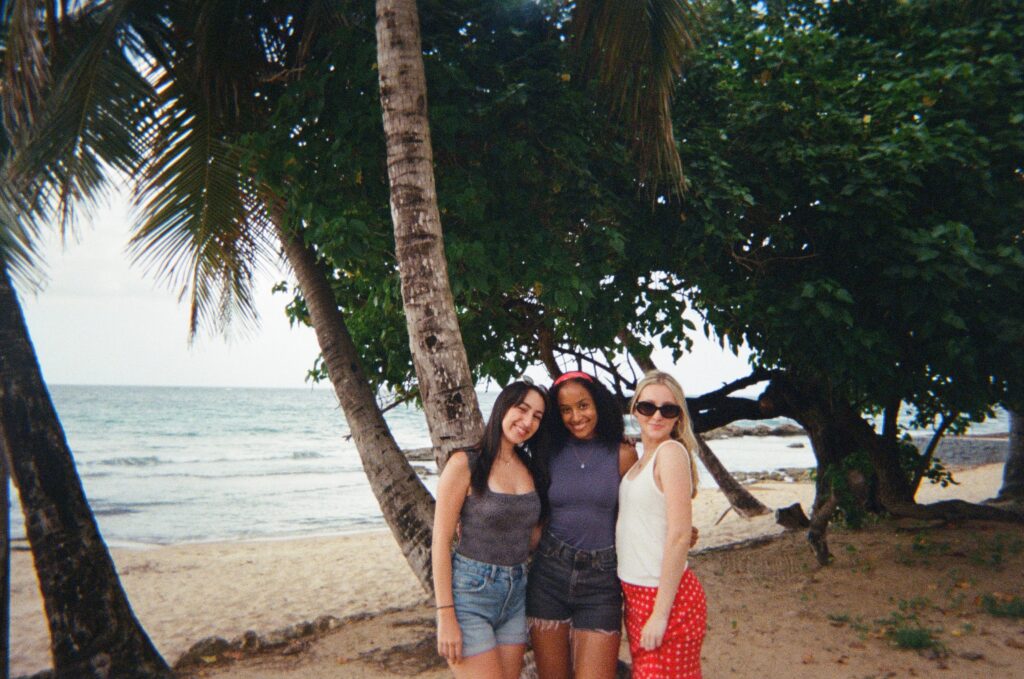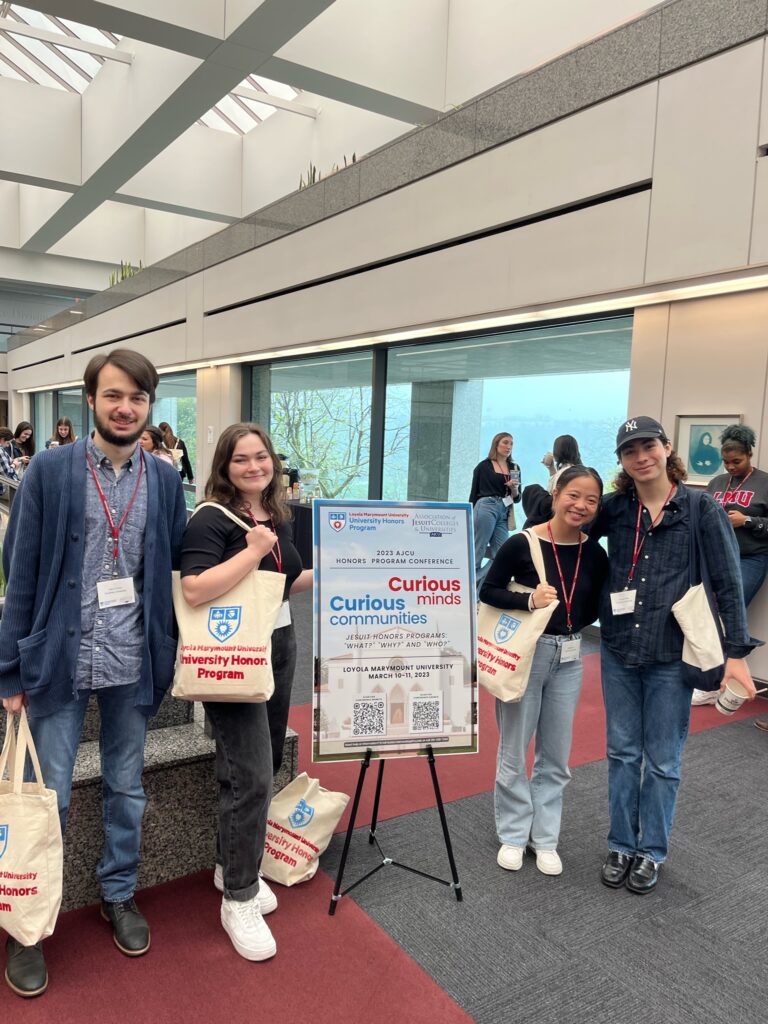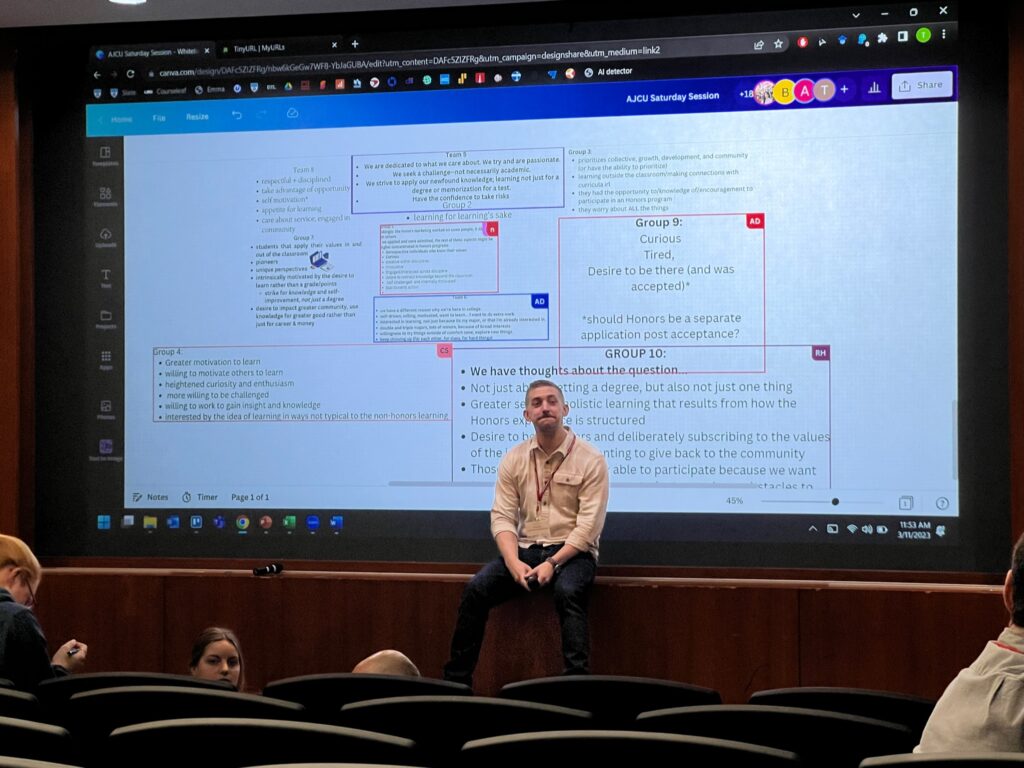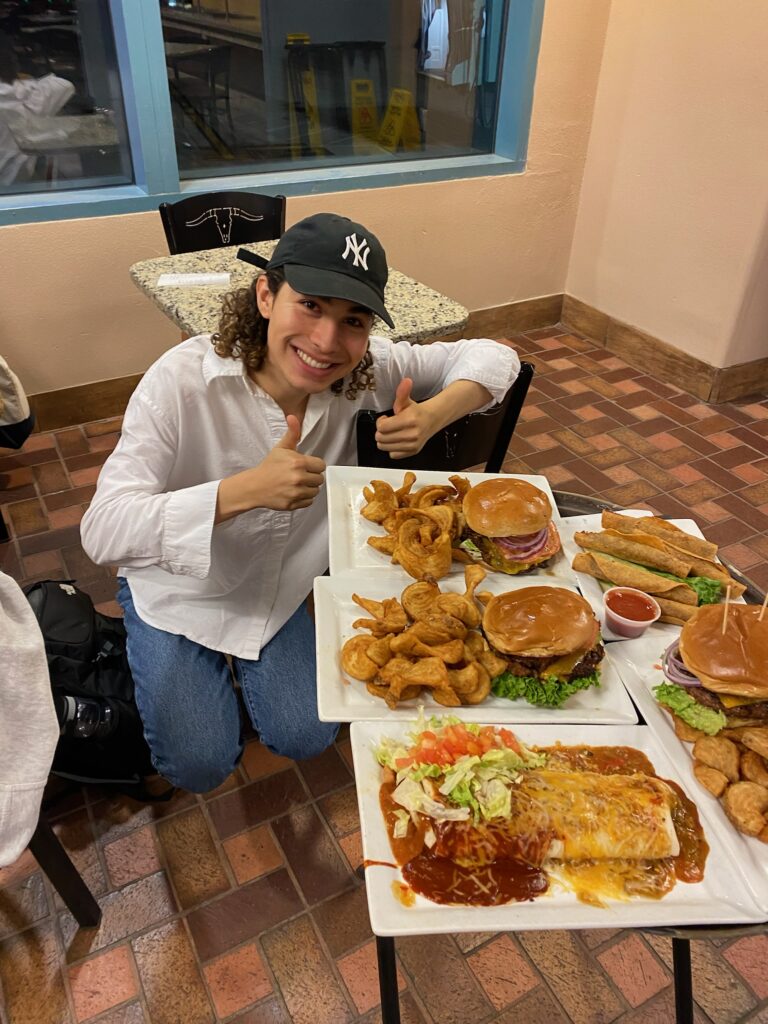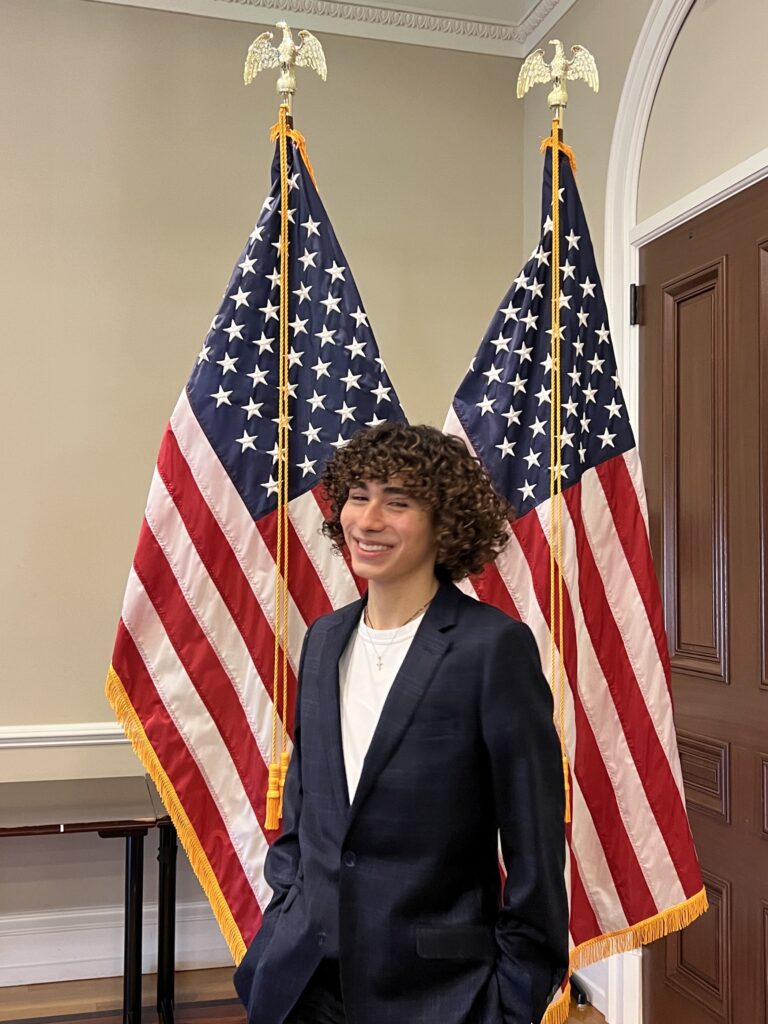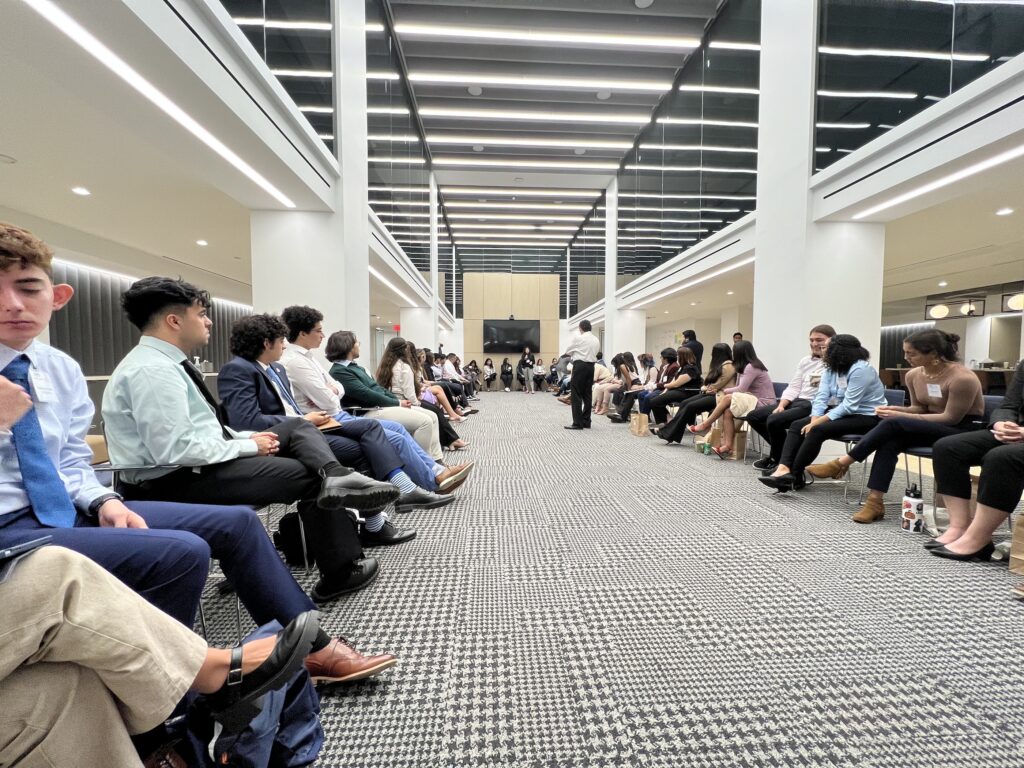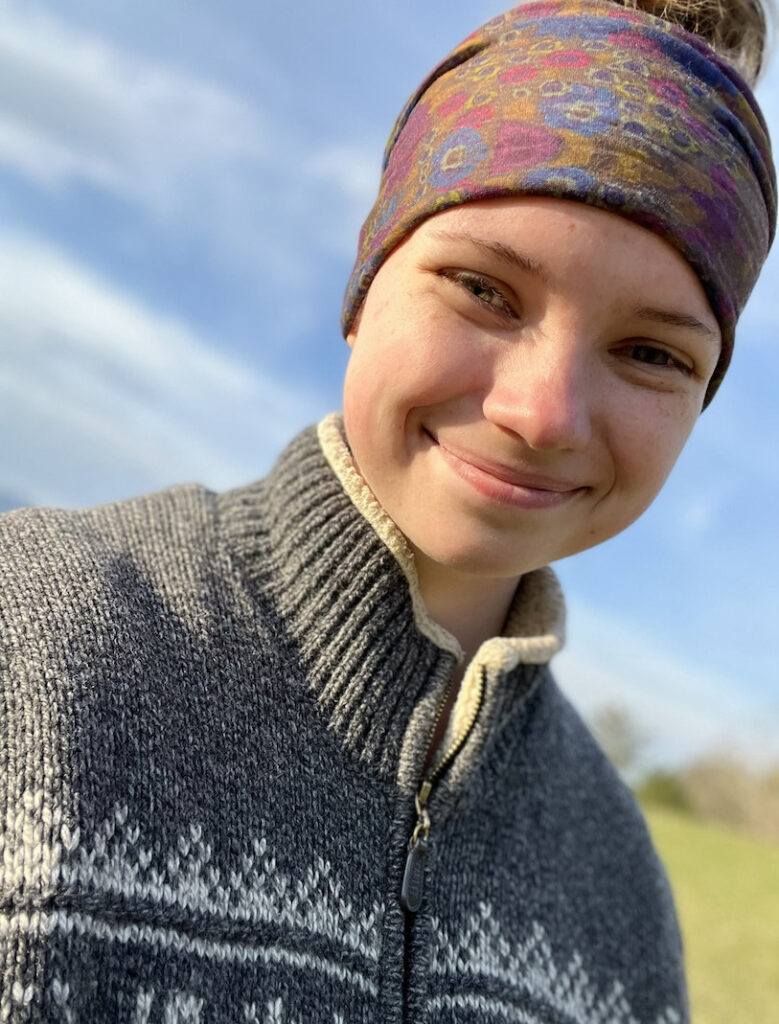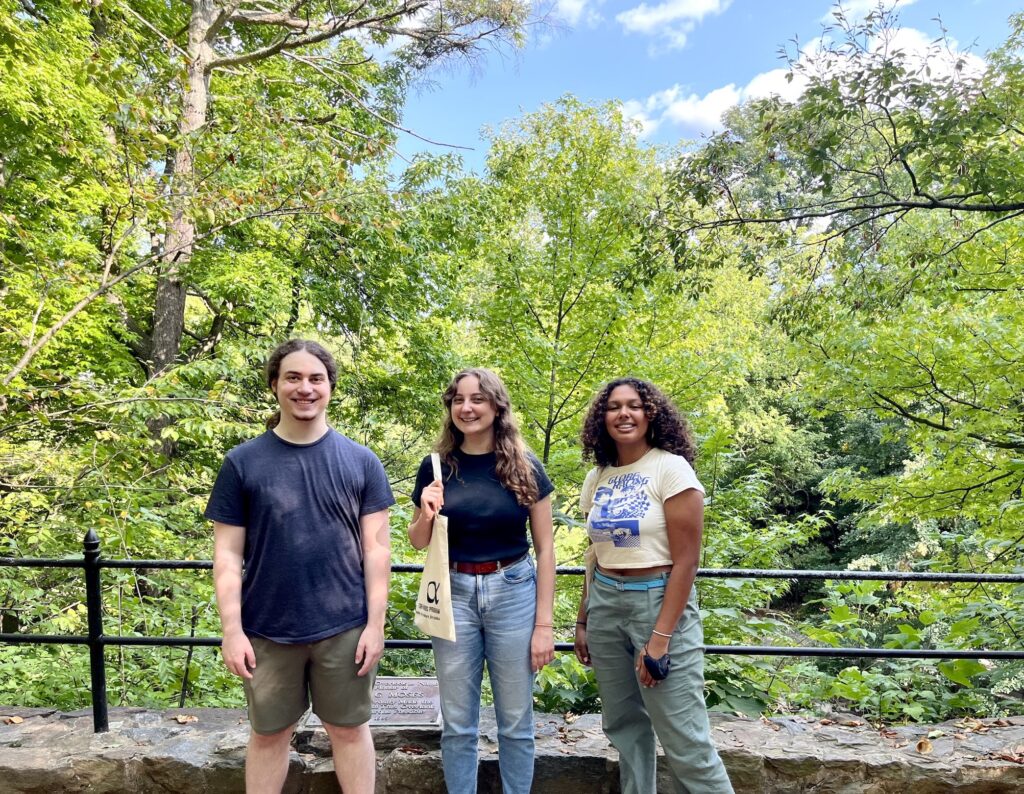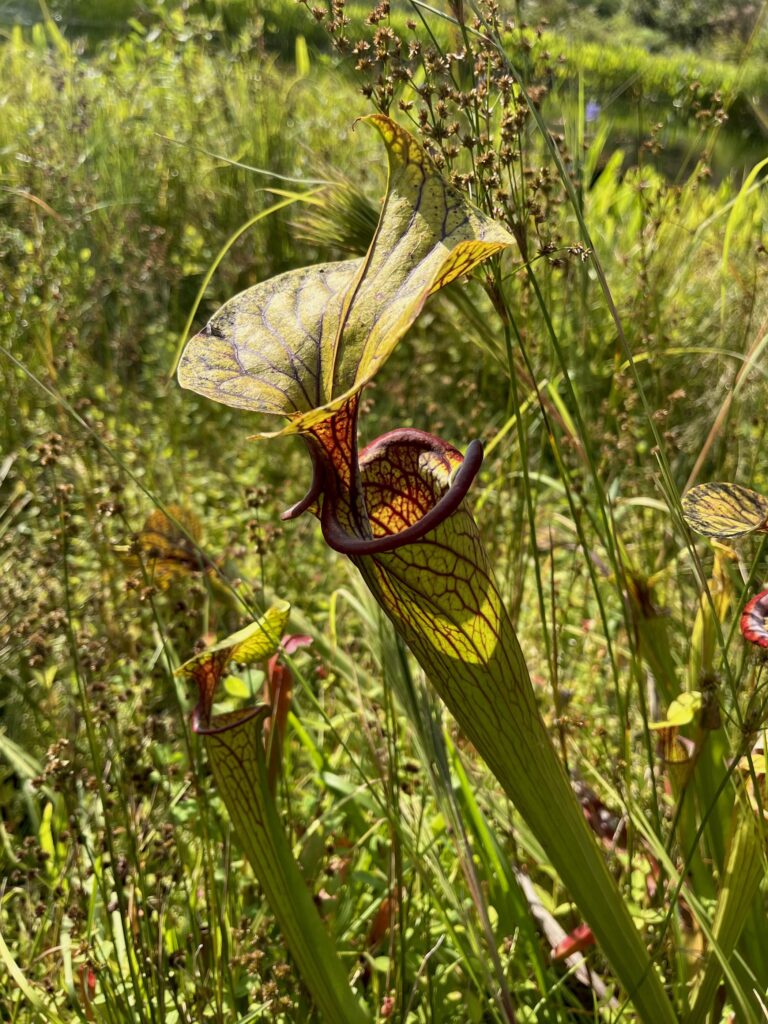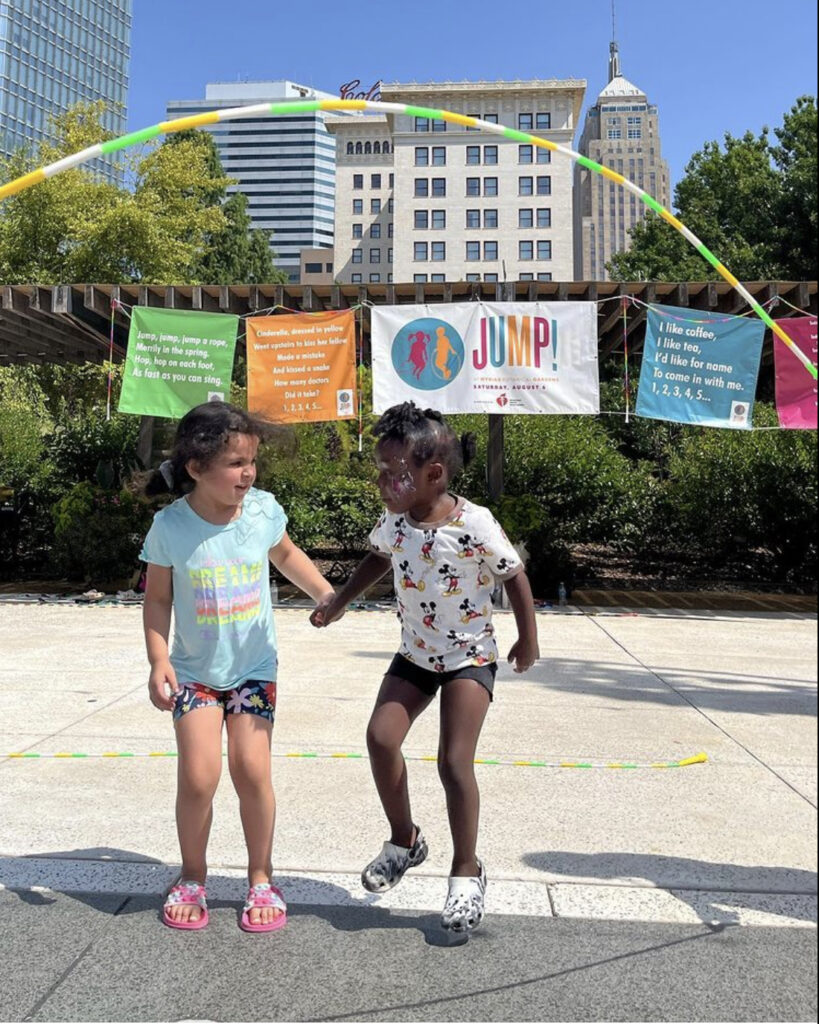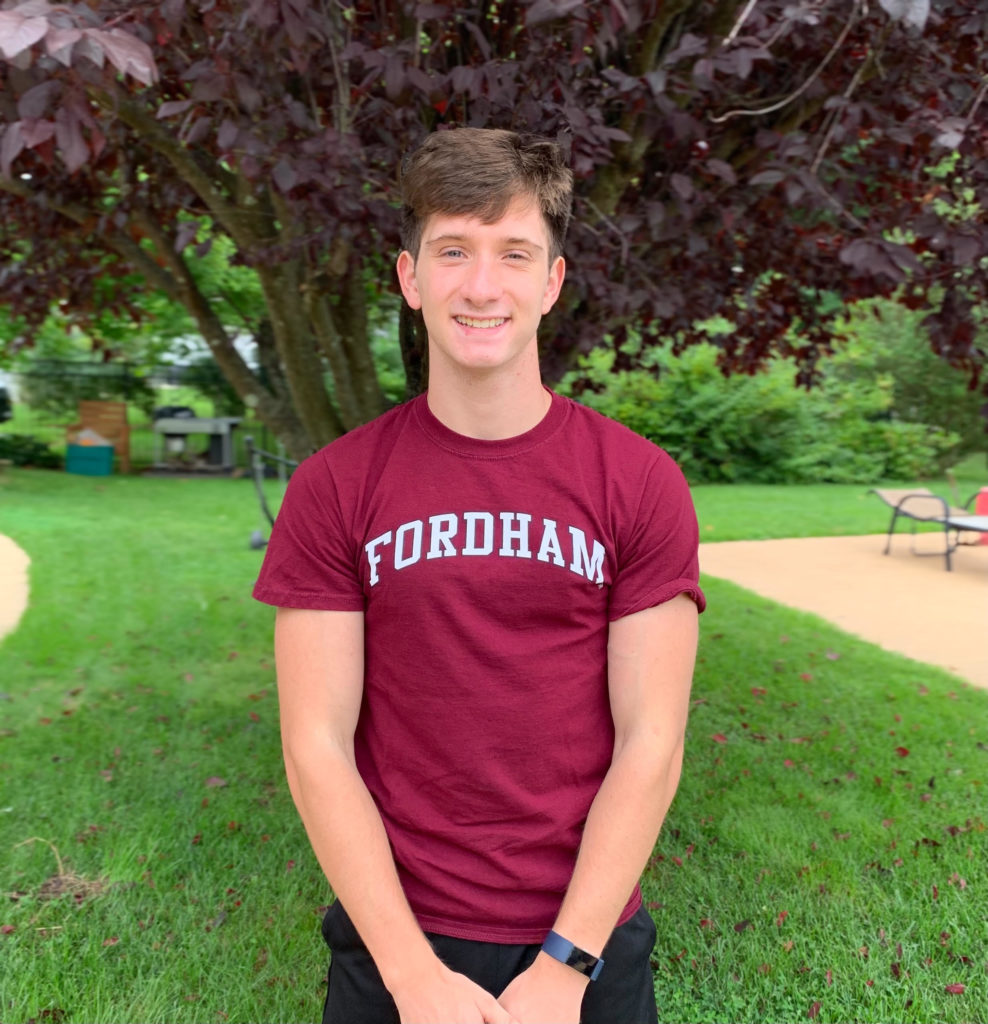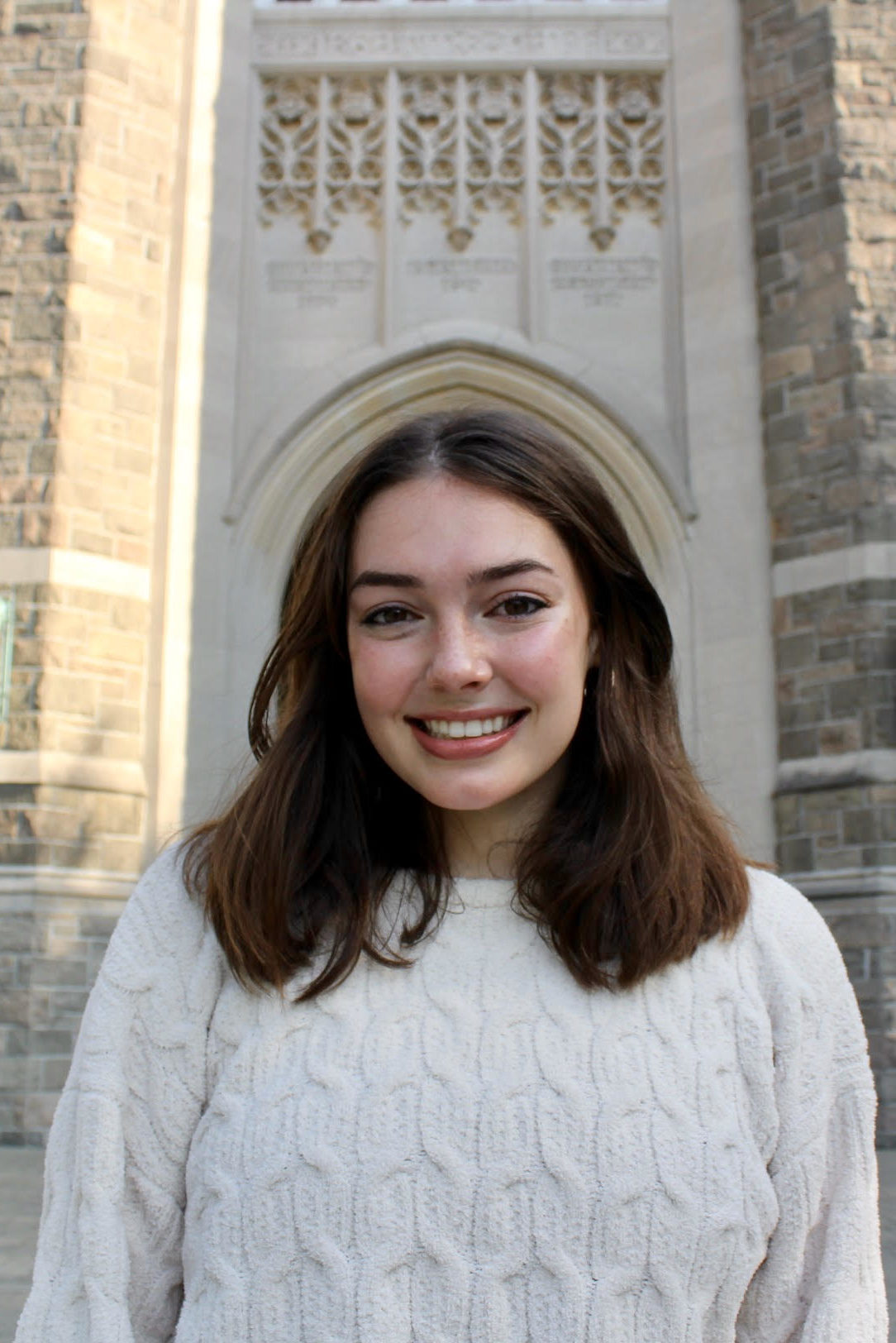Authors: Kathryn Amend, Maya Anand, Sean Huynh, Alexander Kim, Francesca Stella, Elijah Otaner, Nicholas Bianco, Natalie Loo, Julian Melendez, Kirsten Rosas, Julia del Pino, Andres Caballero
In October 2024, a group of Honors students began preparing for a Global Outreach (GO!) trip to Puebla, Mexico. Each week, we met for around two hours to build relationships within the group and learn about the purpose and goals of the trip. We discussed the intricacies of sustainable farming and contextualized the migrant experience in preparation for working at Enlaces Community Center and La Sagrada Familia migrant shelter. Our GO! Leaders, Sean Huynh and Natalie Loo, made sure we were as prepared as possible to fully engage and gain something from this experience. We focused on the purpose of the trip and what we each wanted to personally achieve during immersion. Beyond this informational preparation, we also grew closer as friends and as a team by meeting individually with a different group member each week. Whether it was a quick chat over Dagger John’s or a trip to get frozen yogurt on Arthur Avenue, we enjoyed these chances to learn more about each other.
During formation, our group discussed the 2024 election and how the ongoing culture wars surrounding migration and the US-Mexico relationship would complicate our presence in Mexico. It was essential to our team to help establish a sense of hope for ourselves and the people we met during this trip. Despite our worry about this tension and the language barrier for many of us, the people we met at the community center were nothing if not welcoming. Whether we were working alongside Joanna and Maria in the kitchen or communicating with Renato through simple gestures and the help of translation, there was a richness in the interactions that transcended words. Renato’s life lessons were an especially poignant example of how connection can happen even when language fails. We learned about the universal need for human dignity and service and how these values are foundational to the work we were engaged in.
We spent the bulk of our daytime hours doing physical labor around the farm, such as tilling, composting, planting vegetables, and removing trash and microplastics from the soil. During some afternoons, we also helped babysit kids from the community and had the opportunity to have conversations with their parents and family members. Many of us found our most intimate connections during this time, whether playing with or teaching the kids, engaging in small talk with the adults, or even just stepping away from the high-energy environment to return to farm work.
We also spent a lot of time learning about the real-life practices of sustainable farming, specifically in the context of small-scale family farms. Arturo’s work advocating for sustainability on his farm and within his community was a direct reminder that sustainable practices can start small but have ripple effects. Every resource on the farm was used to its fullest ability, down to human waste. While large-scale solutions to environmental issues are necessary, the realization that individual actions matter became clear when we applied the techniques to several families’ backyard gardens. We began to understand that sustainability doesn’t look the same everywhere; it must be adapted to local contexts. What works in one place may not work in another, and the key to meaningful change is being responsive to the environment, the people, and their unique needs.
The experience was also deeply reflective of social justice, particularly the urgency we saw in the migrant shelter in Apizaco. Meeting people who were facing the struggles we had been discussing in our formation meetings reminded us of the larger political and social issues we must confront outside of this experience. The shelter visit, though distressing, sparked a realization of the importance of empathy, solidarity, and active resistance against unjust systems. It left us grappling with the contradictions of privilege, borders, and the harsh realities many people face daily. During our nightly reflection that day, we reflected on the difficult fact that while engaging with people who needed help, the path for tackling the underlying problems that created their circumstances was very unclear. In these moments of doubt, we had to trust in Arturo’s insistence that solidarity is ultimately the key to promoting universal human dignity.
Even when confronting these sobering realities, there was much joy in daily life in Cholula. We experienced a profound connection to the environment, and the shared experiences of working, eating, and reflecting together created an unspoken bond among us. We also felt a deeper connection to the land through the rituals and practices we were taught: asking permission from and thanking the land, the cycle of crops, and the movement of energy through us and back into the environment. The small tasks—like washing dishes or tilling the soil—held great meaning in the context of the trip’s broader themes. Even the humbling presence of the Popocatépetl volcano served as a reminder of the natural forces that shape our world, grounding us in the significance of living in harmony with the environment.
Towards the end of the trip, as we were wrapping up the projects we had started at the beginning of the week, we spent a little more time inside, listening to presentations about other kinds of sustainable work. We listened to presentations by the founders of the Bamboo Architecture Company and Kuiñi Xa’a Mezcal company. It was amazing to see other sustainable innovators who had brought their products to market and remained competitive while remaining environmentally conscious.
Every group member left this trip with a newfound appreciation for solidarity, sustainability, and service. Whether it was the lessons about sustainable farming or the need to respond to urgent social justice issues, this trip provided a framework for creating meaningful change in our communities. The experience in Mexico was not just a week of service learning — it was a lasting reminder that real change begins with empathy, action, and a deep respect for the environment and one another.








